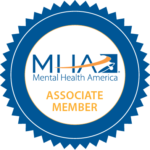
- This event has passed.
CBHL Member Advocacy Workgroup | Workforce Subgroup
August 18, 2022 @ 10:00 am – 11:00 am MDT
At our June 21 Advocacy Workgroup meeting, workgroup members recommended focusing on specific areas of interest, forming subgroups self-organized by CBHL members. The subgroups met during the month of July to develop a summary of key messages for each interest area that apply to the three components of the National Strategy outlined below.
The Workforce subgroup meeting in July focused on developing key advocacy messages related to the behavioral health workforce, with a focus on peer support & paraprofessionals. The full workgroup then reconvened and provided additional feedback in relation to this area of focus.
The purpose of this subgroup meeting will be to consider additional feedback from the full workgroup and to further refine messages.
A more detailed agenda will be shared with registrants prior to the meeting.
As a reminder, the overarching purpose of the Advocacy Workgroup is to support passage of funding for President Biden’s National Behavioral Health Strategy which includes three primary components:
- Strengthen System Capacity: Focused on dramatically expanding the supply, diversity, and cultural competency of our mental health and substance use disorder workforce – from psychiatrists to psychologists, peers to paraprofessionals – and increase both opportunity and incentive to practice in areas of highest need. This also include staffing to support the the launch of 988 and expansion of CCBHCs.
- Connect Americans to Care: Focused on expanding and strengthening parity, integrating mental health and substance use treatment into primary care settings, improving veterans’ access to same day mental health care, expanding access to tele- and virtual mental health care options, expanding mental health support in colleges and universities, embedding mental health and substance use providers into community based settings, and increasing navigation resources.
- Support Americans by Creating Healthy Environments: Focused on addressing determinants of behavioral health, investing in community services, and fostering a culture and environment promoting mental wellness and recovery. This includes strengthening children’s privacy and online protections, investing in research on social media’s mental harms, expanding early childhood and school based intervention services and supports, increasing mental health resources for justice involved populations.

